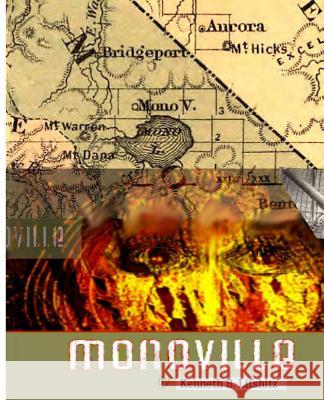monoville » książka
monoville
ISBN-13: 9781453896365 / Angielski / Miękka / 2010 / 580 str.
Life can be for some a process of progressive marginalization. Life at sea often draws those who prefer to live in those margins, seeking an existence at the very periphery of society, evading its standards even while nominally serving its aims. When Mandelbrot Feuerstool, a member of the U.S. Coastal Survey, finds himself unwillingly trapped in a cycle that draws beyond the pale by the apparent suicide of his captain, Archibald MacRae, he embraces this process. Crossing the line, his own aims become the equivalent of and indistinguishable from criminality, thenceforth finding his only rationale in the commission of further crimes.
This complex and compellingly written novel set in post-gold-rush California, Oregon and Washington State revolves around the activities of the individuals in the U.S. Coastal Survey who map the contours of the West Coast as the influx of gold seekers and others swells the bays and ports of the cities. Feuerstool, lurks fitfully and uncomfortably among the intellectuals, painters, scientists and engineers of the survey. His shipboard existence begins to unravel with a trivial disagreement with the Captain of the U.S.C.S Active, John Alden, over the ship's milk ration, this dispute occurring just after the shipboard suicide of the Captain MacRae on the sister ship, U.S.C.S. Ewing. Surprisingly it is the former not the latter that seems most to preoccupy the mind of the quirky Captain Alden.
Set in the years leading up to the Civil War, 1855-61 in the American West we find a divided society where larger and larger segments are being progressively disaffected from one another and as the country and West finds itself transformed not just with the Colt 45 but with the moral and scientific imagination. Feuerstool must learn to navigate not only the uncharted, sometimes brutal waters of the Pacific but the shifting boundaries of his own increasingly twisted physical and moral imagination. In refusing to accept boundaries, moral or physical, the gun comes into play as the role of moral arbiter of those boundaries. Then and only then do we learn what physical or emotional lines we are really willing cross.
When Feuerstool, unable to answer the questions that pursue him, jumps ship he finds himself assailed by new demons both real and imagined. A natural polymorph, he continually transforms himself even while acting as his own judge and jury--granting himself license to continue in his increasingly questionable pursuits.
We find ourselves spectators to this personal transformation and we find him pursued not only by his demons but by newly elected legislator from Mono County, California, T.N. Machin, this for the alleged murder of his prospecting partner Kirlew Hume, a murder committed on an Indian sacred site in the Bishop Tuff. Machin eventually must choose whether to continue the pursuit of Feuerstool or abandon it and take up his elected position in the legislature. Increasingly both their choices hinge on the ability to make sense of the crime or crimes that Feuerstool has committed, (and the growing realization that there are consequences also for those who either abandon or defer the pursuit of justice). Machin, by assuming his elected position must forfeit the moral high ground. Feuerstool, will do the same but through his knack for imitation (and without seemingly forfeiting anything).
Like the west itself, the characters do not reach out to welcome the reader's inspection. They seek rather to evade it. Like T.N. Machin, they must determine for themselves when and if the search for meaning and justice should be abandoned. Feuerstool creates for himself the form of his own retribution and it is the utter rationality of his irrationality that makes the punishment so bizarre and him such an intriguingly complex character
This is not just a story about the American West but of defining the frontiers of our own personal existenc











